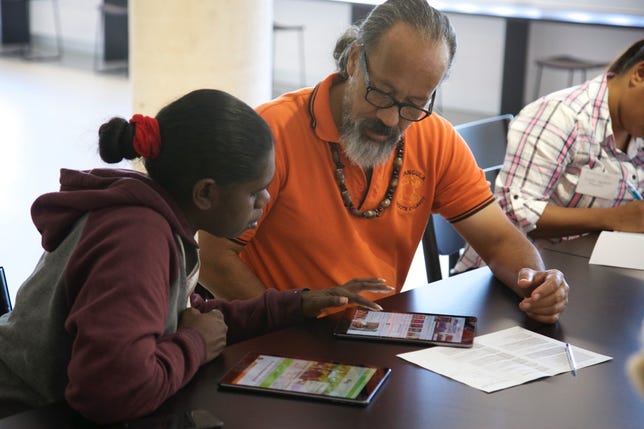
Broadband for the Bush Alliance.
A forum of indigenous leaders, communications groups and regional community advocates has called for greater digital inclusion across Australia, saying parts of the country are being left behind as Australia carves out its broadband future.
The comments came at the fourth annual Broadband for the Bush Forum held in Darwin last week, which brought together researchers, Government representatives and business leaders with representatives from organisations such as Facebook, NBN and the CSIRO.
While the rollout of the NBN continues across the country, remote community leaders have long lobbied for targeted communications solutions that address the specific needs of Australians outside the major centres. With many communities currently making do with “ad hoc” infrastructure and some places relying on nothing more than communal public phones, the issue of digital inclusion was once again front and centre at this year’s Forum.
Forum organisers, the Broadband for the Bush Alliance, said the event examined appropriate service levels for remote communities and “recognised that the existing NBN strategy is part of the solution, but not the whole solution.”
“While the NBN’s Long Term Satellite Solution will ultimately provide an upgraded service for many remote Australians, questions remain regarding its ability to meet long term community communications access needs,” the Alliance said.
“In many cases communities would receive communication services via satellite, despite close proximity to fibre backhaul connections.”
Related Stories
- The tyranny of distance: Building better broadband for the bush
- NBN Co expands satellite services for remote Australia
- Beyond the sandstone curtain: Country victims of a stalled NBN
The Forum called for the exploration of alternative “last-mile delivery options” for communities, such as Wi-Fi access, and also made recommendations for essential services such as healthcare, education and Government services to be excluded from data caps in remote communities. In addition, the Forum called for mobile coverage to be addressed through black spot programs.
According to organisers, these issues of access are set to become more relevant as services are increasingly delivered to Australians online and a “failure to flexibly address remote communications needs will ultimately lead to a failure in closing the digital divide that exists between urban and remote Australia.”
Indigenous groups also called for an increasing need for digital inclusion for Aboriginal Australians as part of a dedicated Focus Day during the Forum.
“Remote Indigenous people are the most digitally excluded group in Australia, yet where connectivity is available, they are quick adopters,” said Indigenous Remote Communications Association (IRCA) general manager Daniel Featherstone.
One example Featherstone cited was Facebook. With many Indigenous Australians living in communities without a traditional street address or phone number, he said it was “the main way that a lot of people are keeping in touch with friends and family that are dispersed around the country,” especially if they had limited English text literacy.
“People can say what they want, it’s their space,” he said. “There’s an empowerment associated with that.”
While there are still plenty of issues facing remote communities, Featherstone noted there were also digital success stories, including IRCA’s IndigiTUBE website, which provides a platform for remote media producers to share work and promote local cultural content.
Featherstone also highlighted the Ara Irititja archiving project, a “fantastic engagement tool” focused on digitising content such as photos, books and children’s drawings to increase access to cultural history and preserve it for future generations. The digital archive, which has been rebadged as a “community stories” project has also been used as a training tool by the Northern Territory Library.
Thanks in part to advocacy from IRCA, Featherstone also says State and Territory governments have also committed additional funding to mobile black spot programs, while NBN has begun offering a new Public Internet Premises product that allows for Wi-Fi sharing in remote communities.
NBN has been contacted for comment.




